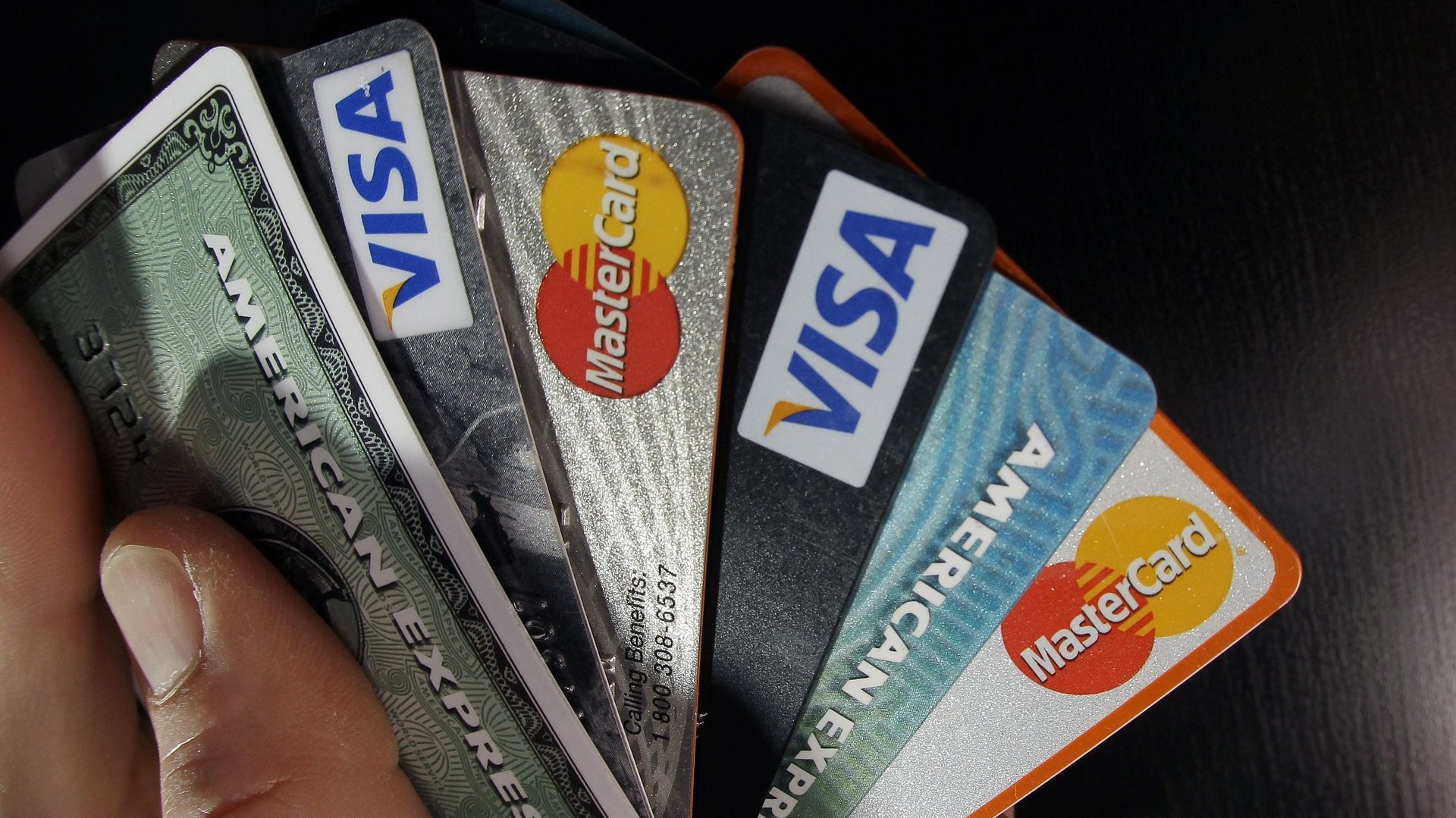The best credit cards to have in your wallet
These days, using the right credit card to buy groceries can earn you a free trip to Florida. But getting that trip takes having the right card and using it at the right time. Hardcore point enthusiasts treat it like a full time job. But what if you can’t devote 30 hours a week to obsessing about credit-card points? If that’s the case, don’t worry—there are only two questions you need to ask: is this all worth it? If yes, what credit cards should I have?


These days, using the right credit card to buy groceries can earn you a free trip to Florida. But getting that trip takes having the right card and using it at the right time. Hardcore point enthusiasts treat it like a full time job. But what if you can’t devote 30 hours a week to obsessing about credit-card points? If that’s the case, don’t worry—there are only two questions you need to ask: is this all worth it? If yes, what credit cards should I have?
Is it worth it?
Probably yes. Unless you never travel or go to events. The Points Guy, a website dedicated to hacking travel, calculated the point to dollar conversion rate each month for credit cards. American Express and Chase points are consistently among the most valuable, at about $0.02 per point.
The points can add up. Suppose credit card points are worth about $0.02 a piece and you get triple points for buying groceries, that’s an extra $600 a year (assuming you spend $200 a week on groceries). You can use points to pay for flights, hotels, concerts, or even groceries. Of course deciding how to use your points is complicated, the point per-dollar exchange rate depends on what you spend points on. Generally flights and hotels offer the best value. So if you travel for pleasure, or want to gift someone who does, collecting points is probably worth it. Of course it’s not free—credit cards that are most point generous tend to have high fees, as much as $550 a year (though the majority of that can be offset by travel-related credits). So which credit card is right for you depends on your spending and travel plans.
What cards are right for you?
The Points Guy (who makes money by referring people to credit card companies, so bear that in mind) ranks American Express Platinum as the best overall card, he calculated the value of the benefits total $1400. He thinks the Chase Sapphire Preferred is the best “starter card”: For a modest $95, you get $1000 in benefits. But it is important to remember, he caters to frequent travelers and the value of the cards assumes you’ll make use of all the frequent flier perks. The right card for you depends on both your spending and travel habits.
You travel and spend A LOT
If you travel frequently it might be worth spending a few hundred dollars on an Amex Platinum ($550 fee) and a Chase Sapphire Reserve ($450 fee). American Express Platinum offer 5 points per dollar spent on travel and many perks for travelers like lounge access and free Global Entry. The fee may not be so large because Platinum offers a $200 credit on travel fees like checked bags and seat upgrades. Chase offers a $300 travel credit, which brings its fee down to $150, and triple points on dining and travel (and a 1.5X redemption value if you use your points for travel). Those point bonuses make it easy to build up a high points balance quickly. If you travel or dine out often, you could rack up more than 200,000 points within a year.
When it comes to spending, both cards have dedicated customer-service reps who can strategize with you on how to best spend your points on flights and hotels. They also have the advantage that points can be transferred to different airlines and hotel chains.
You travel sometimes and spend like an upper middle class person
If you are a serious traveler or spender, the high premium and their hundreds of dollars in fees may not be worth it. The American Express Gold Card is only $250; it has fewer perks but still offers significant bonuses on most forms of spending, like quadruple points on dining and groceries. The Chase Sapphire card is only $95 a year and also offers a generous double points on dining and travel. Unless you have a big trip planned, either or both of these cards are probably sufficient. But if you’re looking to add up points faster, you may want one mid-tier card and one premium one to compliment each other. I’d suggest one Chase and one American Express to achieve optimal diversity.
Everyone else
If you don’t spend much on dining or travel, the benefits-to-fee tradeoff is less compelling. You may want to go with reward cards with no fee (and no point bonus) like the American Express Blue. If you never travel you may prefer a card that offers cash back instead (one great, simple option is the Citi Double Cash card, which returns 2% of your purchase amounts back to you). Many travel cards offer cash back rewards too, but you get a much lower return on your point value. Some cards offer better cash back rates, though you give up the good travel perks.
Spending is complicated these days. But with a little thought, research, and a few hundred dollars in fees you can tell yourself your trip to Miami was free.